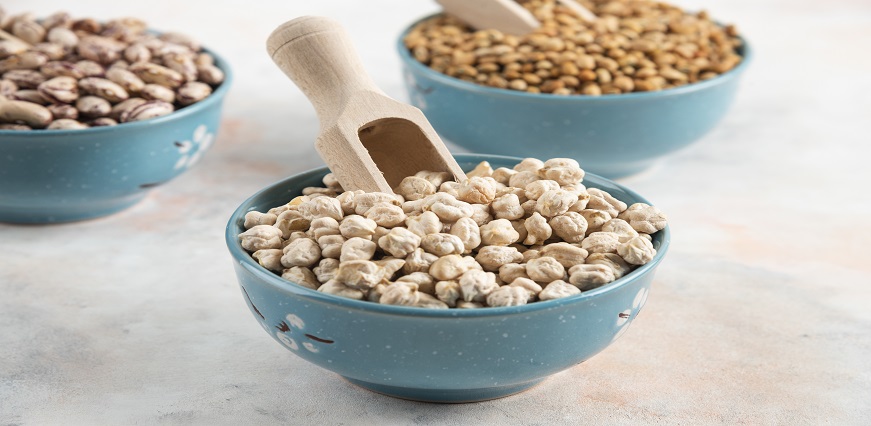





No lab centers are available in this city

Anemia is a blood disorder that can be caused by a lack of iron in the diet. People with anemia may have symptoms such as fatigue, weakness, and shortness of breath. A diet for anemia should include foods that are rich in iron, such as red meat, dark leafy greens, beans, and fortified cereals. Anemia can also be treated with iron supplements.
Anemia is a blood disorder. When there are not enough red blood cells, the body's tissues do not get enough oxygen and the person feels tired and weak.
There are many different types of anemia, each with its own cause. The most common type of anemia is iron deficiency anemia, which occurs when the body does not have enough iron. Iron is found in food and is used by the body to increase hemoglobin, a protein in red blood cells that carries oxygen. Other types of anemia include
• Vitamin B12 deficiency anemia: This type of anemia occurs when the body does not have enough vitamin B12. Vitamin B12 is found in meat, poultry, fish, and dairy products.
• Folic acid deficiency anemia: This type of anemia occurs when the body does not have enough folic acid. Folic acid is found in leafy green vegetables, legumes, nuts, and fortified foods.
• Aplastic anemia: This type of anemia occurs when the bone marrow does not produce enough red blood cells. Aplastic anemia can be caused by certain medications, cancer, or autoimmune diseases.
There are many possible causes of anemia, but the most common cause is not having enough iron in your diet. Iron is necessary for the production of hemoglobin, which carries oxygen in the blood. Other causes of anemia can include blood loss, such as from heavy menstrual bleeding or gastrointestinal bleed; problems with the bone marrow, such as from leukemia; or chronic kidney disease.
Spinach is a leafy green vegetable that is rich in iron and folic acid, two nutrients that are essential for the treatment of anemia. Including spinach in your diet is an easy way to increase your intake of these important nutrients.
Spinach is a good source of iron, which is necessary for the formation of hemoglobin, the protein in red blood cells that carries oxygen throughout the body. Just one cup of cooked spinach provides approximately 6 mg of iron or 33% of the daily value. Spinach is an excellent source of folic acid, providing 65% of the daily value in just one cup.
Kale is an excellent source of iron, which is essential for treating anemia. Just one cup of kale contains 3 mg of iron, which is 17% of the Recommended Daily Intake (RDI). Furthermore, kale is a good source of other nutrients that are important for anemia, such as folate and vitamin B6.
Red meat is an excellent source of iron, which is essential for treating anemia. The recommended amount of red meat for people with anemia is 3-4 ounces per day. Red meat is also a good source of protein, zinc, and B vitamins, all of which are important for maintaining a healthy immune system.
Lamb is a great source of iron, which is essential for treating anemia. Just one 3-ounce serving of lamb provides almost half of the daily recommended intake of iron. Lamb is also a good source of other minerals like zinc and copper, which are important for maintaining a healthy immune system. Additionally, lamb is a good source of protein and B vitamins, both of which are essential for energy production.
Fish is a good source of protein and also contains iron. It is a good food to eat if you are suffering from anemia.
Chickpeas are an excellent source of iron and can be a helpful addition to your diet if you're struggling with anemia. Just one cup of chickpeas contains nearly 20% of your recommended daily intake of iron, making them a nutrient-dense food that can help you increase your iron levels quickly. Chickpeas are also a good source of other essential nutrients like folate and copper, which are important for the production of red blood cells. Add chickpeas to your diet by enjoying them in soups, salads, or simply roasted as a healthy snack.
Nuts and seeds are excellent sources of iron, which is essential for treating anemia. Just a handful of nuts or seeds per day can provide the recommended daily amount of iron. In addition to being a good source of iron, nuts and seeds are also high in other nutrients, such as magnesium, potassium, and zinc.
Tofu is a food that is often associated with vegetarian and vegan diets, but it can be a great option for people who are looking to increase their iron intake. Tofu is made from soybeans and is a good source of iron, as well as protein, and calcium. It is also low in calories and has no cholesterol.
If you have been diagnosed with anemia, your doctor will likely recommend a specific diet plan to help improve your condition. Though every case of anemia is different, there are some general dietary guidelines that can help most people with this condition. In addition to eating more foods that are rich in iron, you should also focus on eating foods that promote healthy blood cell production and avoid those that could worsen your anemia. With the right diet, you can significantly improve your symptoms and quality of life.
Maxlab offers an exhaustive list of tests for a comprehensive diagnosis of your health. Take a look at Anemia Test for measuring different components of the blood related to anemia.
 Allergy Test
Allergy Test
 Anemia Test
Anemia Test
 Auto immune
Auto immune
 Blood disorder
Blood disorder
 Bone and Joint
Bone and Joint
 Cancer Test
Cancer Test
 Cardiology Test
Cardiology Test
 Covid Recovery
Covid Recovery
 Dengue Test
Dengue Test
 Depression
Depression
 Diabetes Test
Diabetes Test
 Fatigue
Fatigue
 Fever Test
Fever Test
 Full body
Full body
 Gastro Test
Gastro Test
 Gastrointestinal
Gastrointestinal
 Gynaecology Test
Gynaecology Test
 Heart Test
Heart Test
 HIV Test
HIV Test
 Hormone Test
Hormone Test
 Hypertension
Hypertension
 Immunity Test
Immunity Test
 Infectious Disease
Infectious Disease
 Infertility Test
Infertility Test
 Influenza Test
Influenza Test
 Iron Test
Iron Test
 Kidney Test
Kidney Test
 Liver Test
Liver Test
 Lung Test
Lung Test
 Nephrology
Nephrology
 Obesity
Obesity
 Orthopedics Test
Orthopedics Test
 Physician
Physician
 Pollution Health Checkup
Pollution Health Checkup
 Pregnancy Test
Pregnancy Test
 Prostate Test
Prostate Test
 Senior Citizen Test
Senior Citizen Test
 STD Test
STD Test
 Thyroid Test
Thyroid Test
 Tuberculosis Test
Tuberculosis Test
 Vitamin Test
Vitamin Test
 Women Health Test
Women Health Test
Sign up takes less than 60 secs and gives you access to your offers, orders and lab tests.
Looks like you are not registered with us. Please Sign up to proceed
OTP will be sent to this number by SMS
We have successfully received your details. One of the agents will call you back soon.
 To reach our help desk call 9213188888
To reach our help desk call 9213188888
No Lab Centers are available in this city
Looks like you are not registered with us. Please Sign up to proceed
OTP will be sent to this number by SMS
Not Registered Yet? Signup now.Looks like you are not registered with us. Please Sign up to proceed





 7982100200
7982100200.png)